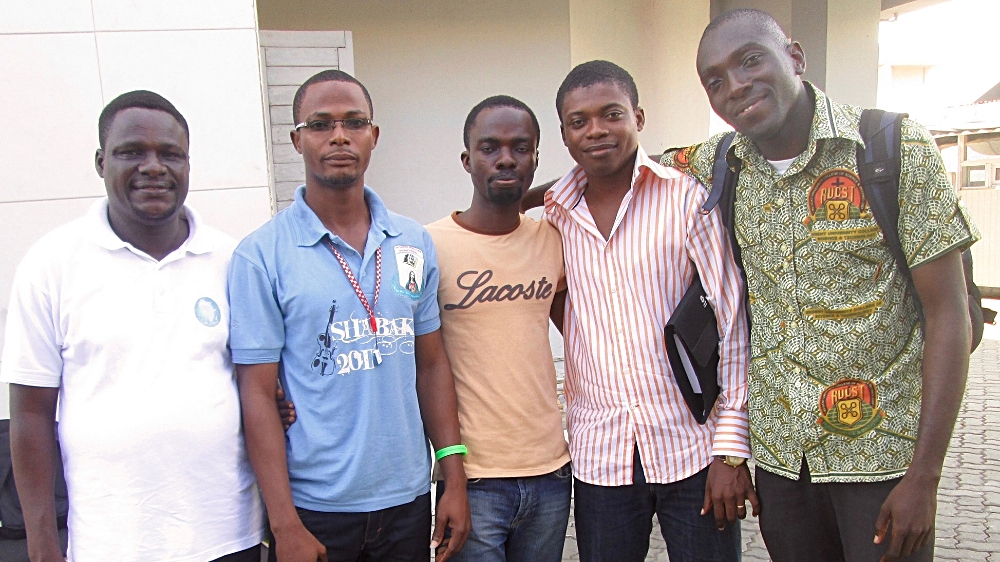The influence of social norms on the psychology of leadership is hard to quantify. Two cultural models, for the most part, stand in the way of leaders striving to excel in Ghana, my motherland. The first is the African chief model and the second is a folklore trickster called Ananse. The African chief typically wills power, is feared and revered due to the honor associated with his throne. Custom often disparages incarnational leadership, thus preventing him from identifying with subjects at their level to better understand and meet their needs. Ananse is a trickster and a hero in traditional folklore. He is deemed prudent in every tale. The Ananse model is cunning and unashamedly exploits others. He attracts accolades from those who benefit from his ploys regardless of the means. Imagine the hurdles one needs to overcome to change this subconscious mindset in the pursuit of leadership marked by integrity, honesty, and accountability.
Writing from an airport in Ghana, I could not ponder the letter ‘K’ in my leadership alphabet without reflecting deeply on why leaders in such a resource-rich nation seem to be staggering to increase levels of productivity. Some say leadership is influence. Others say it is service. I submit it is a lifestyle that attracts influence and exemplifies prudence and practical service. Being and doing are inseparable for those who attract voluntary followers. To focus on execution alone is to assume that punctured vessels can hold fresh water for the thirsty. I have seen leaders fail not because they lacked skills but because of deficiencies in their character. So let’s focus on the being of a leader in this piece—the framing and shaping of the person. Great leaders are known for their values, skills, and their ability to bring those to bear in execution. They endeavor to cultivate the right conditions for all members to succeed, personally and professionally. Here are five things that may help in this regard.
‘K’ is for Knowable
Leaders who are accessible, transparent and engaged are appreciated, trusted and able to retain talents. It is wise to give people the opportunity to know you and your values before they discover you on social media. Be accessible. It helps to make an appearance at birthday parties, enjoy lunch with staff and stage positive surprises. Is it possible for leaders not to even know the names of their team members? Yes. But none of us trust people who deny us the opportunity to know them. To be knowable is to be personable and vulnerable. Heart connection is the most important connection you can make.
I have learned that people share their most profound thoughts, fears, and aspirations when I take the initiative to open up to them. I like to lead with a sense that knowing my story exposes people to my values, boundaries, and passion. The days of secrecy are over. Emotional and cultural intelligence has increased human sensibilities to see through makeup and flashy clothes. Gather the courage to be knowable. Be honest and transparent and watch the loyalty you engender.
Mysterious bosses may get the job done, but they often lack people who desire to follow their lead voluntarily. Knowable leaders who cultivate trust flourish in their work. Listen to what people say at retirement parties for a clue. Simply put, being knowable is noble.
‘K’ is for Knowledgeable
21st-century leaders do not have to know everything. They need to know (1) what needs to be done, (2) who can get it done and (3) how to galvanize the right people to get it done. Learning leaders advance in position, pay, and profile. No business school can equip you enough for self-leadership. It comes by self-awareness and the willingness to work on self. I suggest that you engage an external agent if the same narcissistic tendencies that propelled you to the top are now hindering your ability to recognize your blind spots.
Also, acquire knowledge about the kind of spirit and skills you need on your team. You know you are in trouble if you consider hiring only as filling a vacancy—not a search for the suitable talent. Know your team as well. Not all leaders are extroverts, but all good leaders know how to reach out to their people. If possible read or listen to one nonfiction book a month. I find YouTube and podcasts helpful. Attend a conference or two a year to advance your knowledge. Working hard and working smart are not the same. The challenge is not what we know but realizing the limits of what we know and understanding how to utilize that knowledge. Leaders can adequately lead only to the limit of what they know. Knowledge is power.
‘K’ is for Kindhearted
A recent Time Magazine cover carries the photograph of a little girl, daughter of an illegal immigrant separated from her mother, crying in front of President Donald Trump whose is the alleged cause of her plight. Knowing human reaction to cruelty, the editors purportedly created the image to evoke public sentiment against a heartless leader. To be kindhearted is to be sensitive and prepared to deal with unresolved issues in your own life. Mean-spirited leaders make people miserable wherever they are. Toughness is how they masquerade unresolved pain, personal insecurity, and bitterness in the heart. Most people can see through the façade these days.
For Christians, it is not too late to trade in the pain in your bosom for forgiveness and a tender heart at the foot of the cross of Jesus (Eph. 4:31-32). Too many people grew up not knowing love, care or empathy, but they can learn to care. There is mutual benefit if you can make a good heart connection. Do you know that the primary need of some people on your team is not the paycheck, but care, appreciation, and a sense of belonging. To be kindhearted is to be generous, charitable and gracious. You may not know about the accident on the way to work, bereavement in the family or problems in the home if people don’t know you to be a leader who cares.
‘K’ is for Killjoys
By killjoys I mean people, habits and all forms of practices that undermine human flourishing. Toxicity is a saboteur. People create toxic environments and conditions. Every organization has killjoys that occasionally damage morale and impair group dynamics. There will always be troublemakers on your team. Jesus chose twelve disciples, yet he still managed to have at least one troublemaker.
Decide to correct persistent wrongs you or others generate. Sometimes firing is the answer, but often providing help is the best course of action. A right attitude must be a priority in talent acquisition. Highly skilled people with a bad attitude are high maintenance and costly for industry. Do not underestimate the importance of hiring well to your success. The trouble hearted and low self-esteem fellows, whatever the cause, will spew toxic waste regardless of proximity.
So, are your killjoys personal? Seek help. Do team members cause them? Deal with it. Do not allow fear to deter you from conquering killjoys. Go the extra mile to help those who need it—emotionally and mentally—and their contribution will appreciate in value. Be intentional about creating a safe space and better work conditions for all. If you cannot kill the killjoys, you should at least try to minimize the effects.
‘K’ is for Kinship
Organizations who aspire towards family dynamics talk about belonging, mutual support and discipline as values. They aim to maintain internal cohesion, honor, and corporate pride. Ancient Greek societies modeled leadership after the management of the household. Household leadership became the most tangible way to determine an individual's ability and preparedness for civic leadership.
Today, organizations claim to have family ethos and values, even if their leaders give no time to their own families. Obsession for huge returns provides the rationale to think that better conditions for parents is a waste of resources. The truth is that leaders who are deeply committed to their households tend to promote family values at work.
For sisterhood and brotherhood to move passed cliché, leaders ought to take decisive actions. Everybody must count in the workplace family regardless of race, gender or status. Remember, most people would rather be paid less for a workplace where they feel accepted, valued and appreciated. At the micro level, child care services, working one day a week from home, and flexible work schedules are a few ways to signal to your workers that you value that for which the family stands. Family means that good and challenging siblings share the same space, so do your best to maintain the spirit of unity and charity as long as you are the leader.
Various life experiences mold leaders. Public perceptions of leaders and the busyness of life often deny us the needed space to reflect and work on ourselves. I recommend that you find healing for unresolved issues; that you find time to rest, refresh and recharge; and do your part of cultivating good relationships. If you do, you will see the impact on your role as a leader. You will be more fulfilled, and your team will count it a privilege to work for you. Difficult as it may be, it is a privilege to be endowed with the ability to lead the most complex species imaginable—people. May God grant you grace to do so!






